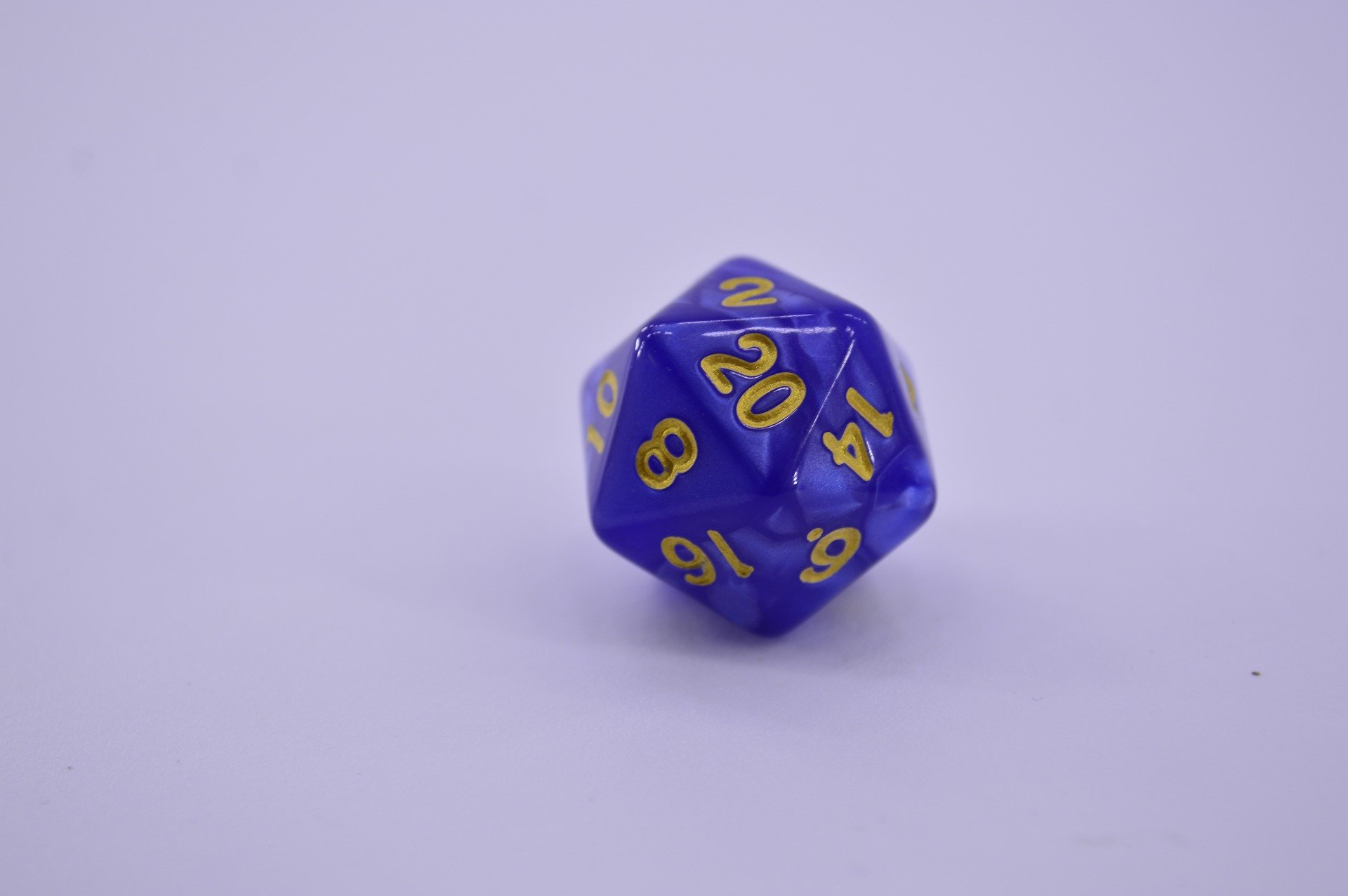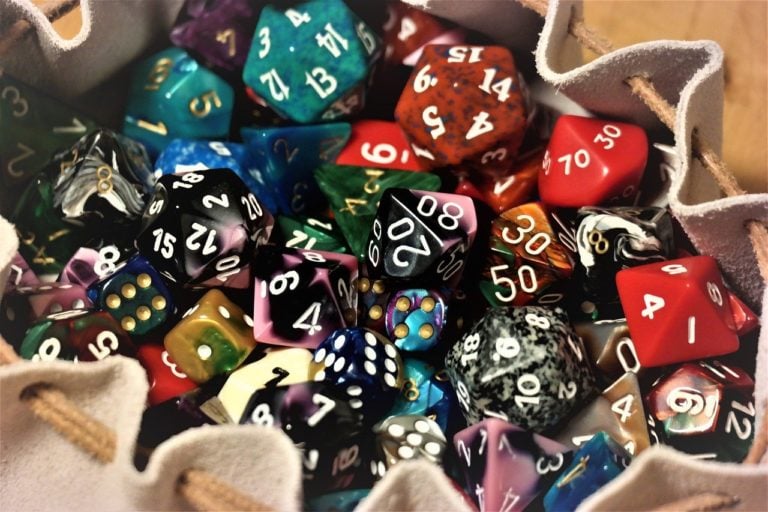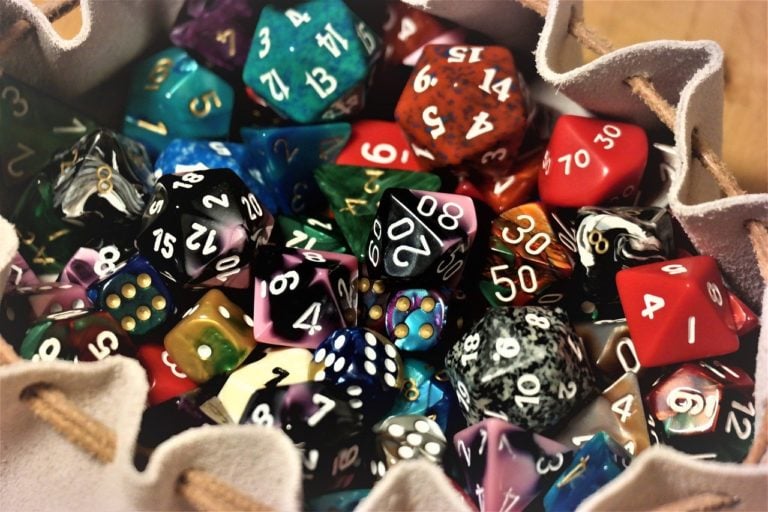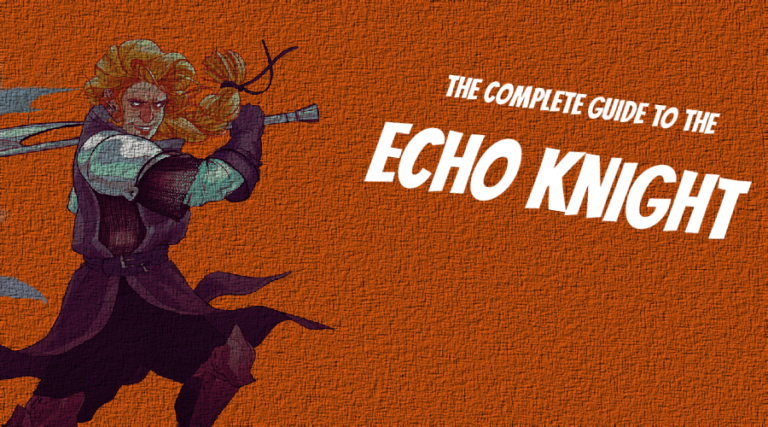Inquisitive 5E | The Complete Guide to the Inquisitive Rogue
The Xanathar’s Guide to Everything was experimental with the rogue archetypes that they introduced. The Inquisitive Rogue was amongst them. Based loosely off the Investigator from editions past, the Inquisitive archetype focuses on solving problems through noticing that things are… off. Rather than exposing jugulars or stealing gold, the Inquisitive’s day-to-day is talking, noticing problems, and eyeing weaknesses. You’re a superb detective, but does that make you an okay adventurer? Let’s find out in our Inquisitive 5e Guide.

Table of Contents
See the Truth: Inquisitive 5E
The Inquisitive is placed in a problematic spot. This rogue archetype is dedicated entirely to out-of-combat goals. You will be a flawless scout for your group, able to see anything that your party can want, or detect lies whenever they come up. In combat, however… You’re nothing. You’re relying entirely on base Rogue class features, with only one ability to aid you before level 3. And that ability is pretty bad.
If you choose this archetype, you’re playing a rogue that is designed for intrigue situations. That’s fine! Just make sure your party can handle a slightly weaker damaging rogue for combat.
Ear for Deceit
The Inquisitive is the only roguish archetype with 3 abilities at level 3. That’s because two of them should probably have been rolled into one, but hey, it’s something.
When you choose this archetype at 3rd level, you develop a keen ear for picking out lies. Whenever you make a Wisdom (Insight) check to determine whether a creature is lying, treat a roll of 7 or lower on the d20 as an 8.
This isn’t spectacular. Most abilities of this theme would allow you to treat anything below a 10 as a 10, and then you have a solid baseline DC to go against. This lowers that potential “solid DC” by 2. That’s problematic, but it sets DCs for insight checks at around the same level as spellcasting DCs. Make sure you are proficient in Insight!
Wisdom (Insight) is a good skill, but this is just one specific niche for the ability. And almost any 5e party will have a Cleric… who’ll probably have fantastic Wisdom. Could you potentially beat out a Cleric with this ability and expertise? If they roll awfully, sure. But in almost all situations, you’d prefer to just have the wise people deal with the liars.
This combos with your Insightful Fighting ability, at least. That’s nice! This is going to start showing a theme of this class being the Wisdom Rogue; a really cool idea, but it just doesn’t pan out well.
Eye for Detail
The second ability is marginally more useful. You essentially gain an expansion to your Cunning Action options.
Starting at 3rd level, you can use a bonus action to make a Wisdom (Perception) check to spot a hidden creature or object or to make an Intelligence (Investigation) check to uncover or decipher clues.
This is good. Especially if you plan on using this archetype in a traditional dungeon-crawler campaign.
Being able to very quickly make Perception or Investigation checks means you can spend your actions setting up climbing equipment or trapping chokepoints. It also means you search areas faster than anyone else; you could theoretically roll 2 Perception or Investigation checks every single round. That’s a lot of chances! Make sure your GM knows that if they have you roll perception checks in the background.
Hidden creatures are problematic, since they normally require an Action to locate. However, in a well-built party, the caster should be using Faerie Fire or Glitterdust. You’ll be able to spot them without using actions or resources, at least. Then a caster can combo with you to ensure their Glitterdust lands.
Investigation checks tend to be less useful than Perception checks. But, if the party’s having trouble with puzzles or needs to find something, then you’re gonna be good at getting those hints.
If you are using this in an intrigue (or non-combat focused) campaign, then Investigation becomes more worthwhile. It’s a lot easier to spot out a crime scene if you’ve got two chances to do it every 6 seconds!
Depending on your campaign style, you’ll want to put your Expertise in one or both of these skills. Perception is the most used skill in the entire franchise, and Investigation can be useful if you’re doing a modern or true crime campaign. You may want to save an Expertise for Insight checks, because…
Insightful Fighting
This ability isn’t bad at all, and you’ll want your Insight check to be huge for it.
At 3rd level, you gain the ability to decipher an opponent’s tactics and develop a counter to them. As a bonus action, you make a Wisdom (Insight) check against a creature you can see that isn’t incapacitated, contested by the target’s Charisma (Deception) check. If you succeed, you can use your Sneak Attack against that target even if you don’t have advantage on the attack roll, but not if you have disadvantage on it.
This benefit lasts for 1 minute or until you successfully use this feature against a different target.
This is pretty cool, and thanks to Ear for Deceit, your DC that your opponent rolls against will be ridiculous. They’ll need a really big Deception check to beat you out! But, there’s a few problems with it.
The big problem is that Sneak Attack is normally not hard to land. You’ll almost always want to have one or two Frontliners in a party – whether it’s a Fighter, Paladin or Cleric. As long as that person is fighting someone, then you can get Sneak Attack. Even if you’re not hidden or in melee with them. That’s going to be almost every fight.
Okay, so there’s two situations where this works well. One, your Frontliner is paralyzed or otherwise can’t make it to an important enemy. Then, you can Insight check them to get Sneak Attack anyways, something that not even the Swashbuckler can do at range. Or two, you’re trying a True Crime or Modern campaign, and your entire party is shooting enemies with guns. That’s a really fun idea, and this archetype lets you get Sneak Attack despite a lack of melee or advantage. Great!
However, even in those situations, the benefit is usually just not that worthwhile; Sneak Attack’s just not usually worth your Bonus Action, and you could theoretically just Hide every turn during a gunfight with Cunning Action. If you’re doing this style of campaign in a dungeon crawler scenario, you’ll find it ineffective unless you really need to split your party’s DPS.
Potentially ask your GM if you can negate disadvantage on attack rolls for attacking an invisible enemy that you used this ability on in the last minute. You’ve already read their moves, right? That should be a piece of cake.
Steady Eye
Those were a lot of abilities! You got 6 levels to try them out, and become the best detective an adventuring party could ask for! Now, brace yourself; it gets better!
At 9th level, you gain advantage on any Wisdom (Perception) or Intelligence (Investigation) check if you move no more than half your speed on the same turn.
This is legitimately impressive! The conditional is a little rough, but being able to roll twice on these checks is strong; Like I said earlier, Perception checks are extremely common in any edition that has it as a skill. And a good Investigation check can solve a puzzle by itself! Go for the crits!
Thanks to your Eye for Detail, you have a legitimately fantastic chance to locate hidden creatures in combat. You’ll see things you didn’t even intend to notice! Just remember to have your party slow down and let you work – you can’t rush perfection!
There’s not that much to say here; advantage on two things you really like to do is stellar! It’s a shame that it won’t be too helpful for your combat capabilities.
Unerring Eye
At last, you get something that doesn’t have skill checks all over the place! Sweet relief!
At 13th level, your senses are almost impossible to foil. As an action, you sense the presence of illusions, shapechangers not in their original form, and other magic designed to deceive the senses within 30 feet of you, provided you aren’t blinded or deafened. You sense that an effect is attempting to trick you, but you gain no insight into what is hidden or into its true nature.
You can use this feature a number of times equal to your Wisdom modifier (minimum of once), and you regain all expended uses of it when you finish a long rest.
Oh, gosh darnit! It’s got a limit!
So, magic designed to deceive the senses actually has quite a few ways to bypass basic Perception checks. Most of the time, you can’t disbelieve an illusion unless you actively interact with it. This ability lets you just shotgun out Detect Magics to try and find something that sometimes, not even Detect Magic can find!
Also useful is finding Shapechangers. Shapeshifting is not usually a magical effect, so being able to locate them is pretty unique to the Inquisitive. If you’re doing a modern or true crime campaign, vampires and werewolves can both shapechange. Being able to locate them in a crowd is significant!
The big problem (other than the Wisdom limitation!) is that it doesn’t let you know what is hidden. You could detect that there’s an effect trying to deceive you and miss the Druid escaping because there’s an illusory wall nearby. Or you could be too close to your Wizard who cast Nondetection on themself and you’ll just be getting false positives
However, if you coordinate with your party and stay close to what you’re looking for (crowds or animals for shapechangers, walls for hidden walls), then you can get real value from this. Just… keep in mind that you’re apparently a Wisdom rogue now.
Eye for Weakness
It took 14 levels, but you finally get a second ability that’s centered around combat. And…
At 17th level, you learn to exploit a creature’s weaknesses by carefully studying its tactics and movement. While your Insightful Fighting feature applies to a creature, your Sneak Attack damage against that creature increases by 3d6.
It’s fine. It’s okay. This seems like a good increase in damage, but the Scout archetype’s bonus action is literally just another Sneak Attack. However, that’s on a second person. Is this the best rogue ability for single-target damage?
There are two other classes that come to mind here; the Assassin and the Thief. At level 17, these two classes essentially roll double their Sneak Attack the first round. That means, for Eye of Weakness to compensate, you’d need to land 4 Sneak Attacks. After spending a bonus action to identify the target. That’s… not impossible.
You’ll have trouble keeping up with the Roguish Archetypes that do something legitimately insane round 1. But, in long, drawn out conflicts? You’ll decimate them. If your party is here to take enemies down over a long time (or you’re in a firefight, if you’re doing that true crime campaign!), then you might get 15 or 18d6 out of this ability. That’s fantastic!
And the best part of this is, in a traditional dungeon crawler with frontliners, you can spend a Bonus action to increase your sneak attack by 3d6. That negates the main downside of Insightful Fighting, since you can at least get something out of your bonus actions.
If your team is extremely durable with great healing, then this’ll get you decent mileage. If only the rest of your class had any combat potential.
Best Race for Inquisitive Rogues
First and foremost… You’re a rogue. Your Dexterity should be as high as you can make it. You need to be able to Stealth to investigate hidden crime scenes, after all! Depending on your build (melee or ranged), you’ll probably want decent Constitution. Finally, your Wisdom modifier should not be as trash as it normally can be. Unerring Eye is a legitimately good reason to have an above-average Wisdom.
Kenku
This is probably your best bet if you ever wanted to take your movie knowledge into a DnD campaign. The Kenku from Volo’s Guide has your +2 Dexterity, +1 Wisdom. Expert Forgery is pretty great for out-of-combat utility, and Kenku Training gives you two great skills that you wanted anyways…
And then there’s Mimicry.
If your GM wants to run a modern-day campaign, then bring your favorite detective movie soundboard and go to town. Or, you can say all those sick one-liners yourself and become a walking-talking pop culture detective. In more serious news, Mimicry allows you to have documentative proof of conversations you eavesdrop on. If people can’t trust a Kenku who heard someone talking, who can they trust?
Lotusden Halfling
This race from Wildemount are just like your typical halflings; +2 Dexterity, Lucky (for if you fail a Will save or a Perception check), Brave, and Nimble. Good for getting through crowds and pushing past threats. The Wildemont halfling gets a few other benefits. First is that +1 Wisdom I oh so love for this archetype. Second is Child of the Wood, giving them Druidcraft, Entangle, and Spike Growth. Druidcraft isn’t amazing, but Entangle and Spike Growth can influence chase scenes in your favor. Finally, Timberwalk makes it hard to track the Halfling. That means, in True Crime campaigns, you’ll be hard to find. That usually doesn’t come up too often, and it doesn’t help your Paladin stay stealthy, but if you’re well-known then you might want that extra protection.
Inquisitive 5E FAQs
What Stats are Most Important for Inquisitive Rogue?
Despite the Inquisitive Rogue’s heavy lean towards Wisdom checks, Dexterity remains your bread and butter. This stat is key to your ability to sneak around, deal damage, and avoid dying. However, you could rely on Wisdom as your second highest skill if you plan on getting as much as possible out of your archetype abilities.
What is the Best Proficiencies for Inquisitive Rogue?
Given the archetype features you’ll enjoy, it makes sense to invest in proficiencies for Perception and Insight. However, these likely still take a backseat compared to classic rogue proficiency’s like thieve’s tools and dexterity.
Conclusion – Our Take on the Inquisitive 5E Rogue
So close to being great! The Inquisitive has some awesome and flavorful abilities but does next to nothing to help save the rogue’s life in combat situations. The core Rogue is good enough at combat – Sneak Attack is great, and will make you effective in fights. But there will be times where you are simply a normal rogue that’s good at perception checks. If you’re okay with slightly weaker combat power (or are doing a campaign that works well with the Inquisitive’s playstyle), then the Inquisitive will serve you well.






